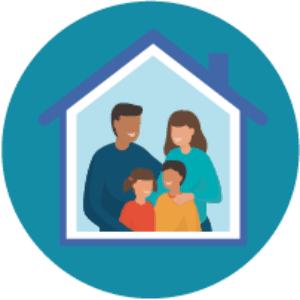
Preparing Your Home for COVID-19
As more and more communities are impacted by the novel coronavirus (COVID-19), all of us should consider creating a household plan to help protect our individual and family’s health. State and local health officials are working together to identify, evaluate, and monitor potential and confirmed cases of novel coronavirus (COVID-19) in Washington. Locally, Spokane Regional Health District (SRHD) is meeting regularly with local leaders and government officials to take measures to protect the public’s health. Individuals also can play a role in this effort by creating and implementing their own household plan using the following checklists:
Plan and Prepare
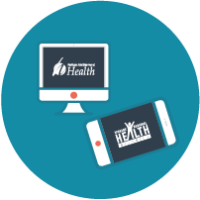
Know Where to Find Up-to-Date Information
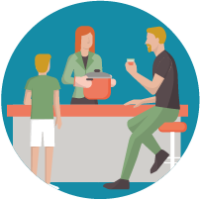
Talk with Household Members, Friends, and Family
Discuss what individual needs might be if a COVID-19 outbreak occurs with someone you know.
- Plan ways to care for those who might be at greater risk of COVID-19 complications such as older adults and people with severe chronic medical conditions.
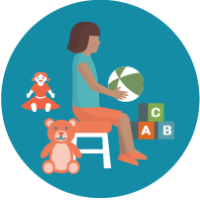
Sick Leave/Child Care
Talk with your employer about sick leave and telework options in case you need to stay home with your child or another family member. Consider planning for alternate childcare arrangements, although using grandparents is not a good idea.
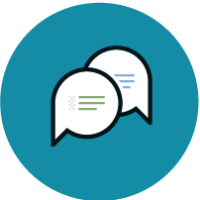
Share Resources
Get to know your neighbors to find out how they are preparing and share resources.
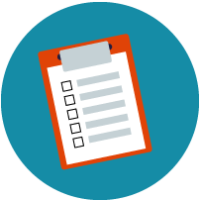
Create a List of Organizations
Create a list of organizations that you can access for information, healthcare services, and support (food, mental health, etc.). Some COVID-19 resources include:
The Washington State Insurance Commissioner has asked all insurance companies to allow people to get a one-time supply of their prescription medications between refills. Make a list of all the medicines that you regularly need and ask your pharmacy or healthcare provider if you can have an extra supply or early refill. Your insurance company may have limitations on refills for certain drugs like opioids. You might also have the option of getting your prescription mailed to you.
The Washington State Department of Health has established a call center to address questions about COVID-19. Phone lines are currently staffed from 6 a.m. to 10 p.m., seven days a week. Call 1-800-525-0127 and press #.
MultiCare is currently offering free e-visits to anyone who has COVID-19 symptoms through MultiCare Virtual Care. Healthcare providers will also help people navigate to the next appropriate step. Use promo code “COVID19” at the payment page to unlock the free e-visit.
Providence Virtual Visit If you have traveled to or from a high-risk country (e.g. China, South Korea, Japan, Italy, or Iran) within the past 30 days, or have been in close contact with someone with COVID-19 and have a fever or respiratory illness (fever, cough or shortness of breath), schedule a virtual visit to speak to a healthcare provider.
CHAS People with concerns for their health, related to COVID-19, can text “COVID” to 424.3654.4956. Individuals who text in will receive a text with screening questions, identifying whether they should call to speak with to the CHAS triage team. A phone or video appointment may be scheduled, if appropriate.
Kaiser Permanente If you or a family member has cold– or flu-like symptoms, here are convenient ways you can get care and advice:
OnlineBy Phone
- E-visit: Answer a series of questions and get appointment recommendations, self-care advice, or other guidance on what care is right for your situation.
- Care Chat: Chat live online with a Kaiser Permanente provider for real-time care and advice. Available 24/7.
- Go to kp.org/wa/onlinecare and sign in to start.
- Consulting Nurse Service. Get 24/7 care and advice at 800.297.6877.
- Phone and video appointments. To schedule a telephone or video appointment with your doctor, call your doctor's office. Or make an appointment online by signing in to the secure member website at kp.org/wa.
Regence Through a variety of convenient care options, Regence members can engage with providers without leaving home. Calls, video chats, and, in some geographic locations, mobile care units are available to answer questions and concerns about their health and well-being. People can sign in to their digital account to see what options are available.
Insurance Nurse Hotlines & Triage Most health insurance plans have a nurse hotline to help answer questions about COVID-19. People can find the contact information on their insurance provider’s website or on the back of their insurance cards.
For Washingtonians without health insurance the Washington Health Benefits Exchange opened a limited-time special enrollment period through April 8, 2020.
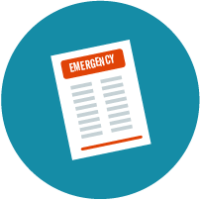
Emergency Contact List
Create an emergency contact list for you and your family.

Brainstorm Fun Family Activities
Brainstorm as a family some fun activities that you can do to make staying home fun together such as baking, reading, playing board games/video games, having a family slumber party, renting a movie, or cleaning together as a family. Look for activities to do on the internet, such as 101 FUN Things to Do in Isolation.
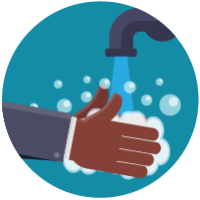
Take Everyday Preventive Actions
- Wash your hands frequently with soap and water for at least 20 seconds, especially when hands are visibly dirty; after going to the bathroom; before eating; and after blowing your nose, coughing, or sneezing. If soap and water are not readily available, use a hand sanitizer that contains at least 60% alcohol.
- Avoid touching your eyes, nose, and mouth.
- Stay home when you are sick, except to get medical care.
- Avoid close contact with others who are sick.
- Cover your cough or sneeze with a tissue, then throw the tissue in the trash.
- Clean frequently touched surfaces and objects daily (e.g., tables, countertops, light switches, doorknobs, and cabinet handles) using a regular household detergent and water.
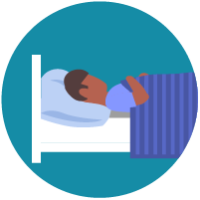
Sick Household Members
Choose a room in your house that can be used to separate sick household members from others.
Take Action
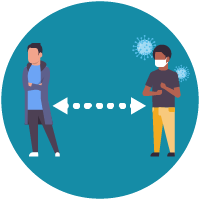
Outbreak in Your Community
In case of an outbreak in your community, protect yourself and others:
- Stay home and speak to your healthcare provider if you develop fever, cough, or shortness of breath.
- Keep away from others who are sick.
- Limit close contact with others as much as possible (about 6 feet).

Put Your Household Plan into Action:
- Continue to practice everyday preventive actions.
- If someone in the household is sick, separate them into the prepared room.
- If caring for a household member, follow recommended precautions and monitor your own health.
- Keep surfaces disinfected.
- Avoid sharing personal items.
- If you become sick, stay in contact with others by phone or email.
- Stay informed about the local outbreak situation.
- Notify your work if your schedule needs to change.
- Take care of the emotional health of your household members, including yourself.

High Risk Individuals
Take additional precautions for those at highest risk, particularly older adults and those who have severe underlying health conditions.
- Consider staying at home and away from crowds if you or a family member are an older adult or have underlying health issues.
- Make sure you have access to several weeks of medications and supplies in case you need to stay home.
- When you go out in public, keep away from others who are sick and limit close contact with others.
- Practice good hand hygiene.

Children
Take the following steps to help protect your children during an outbreak:
- Stay informed about your child’s school closure and any services provided by the school district, such as meals.
- If your child is sick, keep them at home and contact your healthcare provider.
- Stay informed about emergency operation plans for your child’s school.
- Create a daily schedule of family activities and chores to do. Children find comfort and stability with routines.
- Encourage your child to help stop the spread of COVID-19 by teaching them to do the same things everyone should do to stay healthy.
- Clean hands often using soap and water or alcohol-based hand sanitizer.
- Avoid people who are sick (coughing and sneezing)
- Clean and disinfect high-touch surfaces daily in household common areas (e.g. tables, hard-backed chairs, doorknobs, light switches, remotes, handles, desks, toilets, sinks).
- Launder items including washable plush toys as appropriate in accordance with the manufacturer’s instructions. If possible, launder items using the warmest appropriate water setting for the items and dry items completely. Dirty laundry from an ill person can be washed with other people’s items.
- Discourage children and teens from gathering in public places while school is dismissed to help slow the spread of COVID-19 in the community.
Thank you for doing your part to keep yourself, your family, and our community as healthy as possible and to try to stop the spread of COVID-19 disease!
Content adapted from the CDC’s Get Your Home Ready Checklist for Individuals and Families and Get Your Household Ready for Coronavirus Disease 2019.
